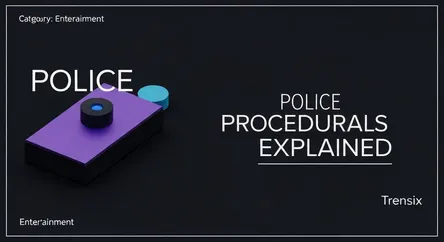Entertainment
Police Procedurals Explained

Explore the enduring appeal of police procedural TV shows, from their formulaic structure to their impact on the crime genre and public perception.
What is a Police Procedural?
A police procedural is a subgenre of detective fiction that emphasizes the detailed, step-by-step investigation of a crime by a police force. Unlike traditional mysteries focusing on a single detective's brilliance, these shows highlight teamwork, forensic science, and the day-to-day realities of police work. Each episode typically follows a formula: a crime is committed, evidence is collected, suspects are interviewed, and the perpetrator is brought to justice, offering a self-contained narrative.
Why is it Trending?
The genre's enduring popularity stems from its comforting and predictable structure. In a complex world, the resolution of a case within a single hour provides a sense of order and satisfaction. The formula allows for easy-to-digest, episodic viewing, making it perfect for syndication and streaming. Franchises like Law & Order, CSI, and NCIS constantly update their methods with modern technology and diverse characters, keeping the format relevant and engaging for audiences year after year.
How does it affect people?
Police procedurals significantly influence public perception of the justice system. They can create unrealistic expectations about the speed and certainty of police investigations, a phenomenon dubbed the "CSI effect," where jurors demand definitive forensic evidence. While providing entertainment and a sense of vicarious justice, critics argue that these shows often glamorize police work and oversimplify complex legal and social issues, potentially shaping viewers' real-world views on law enforcement and crime.